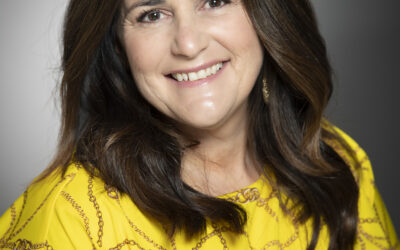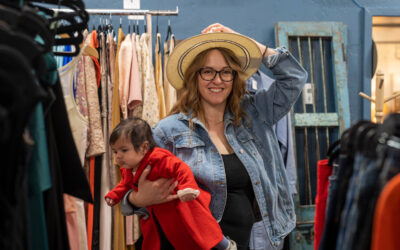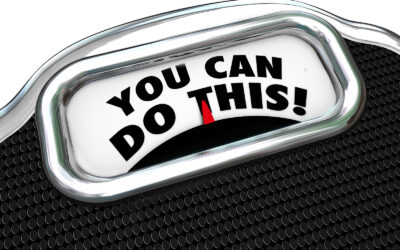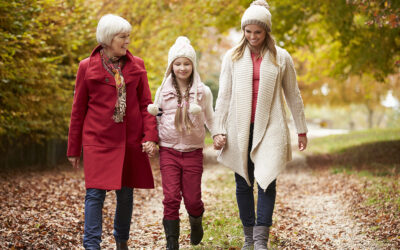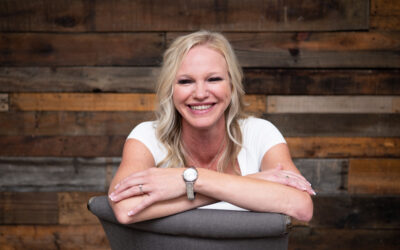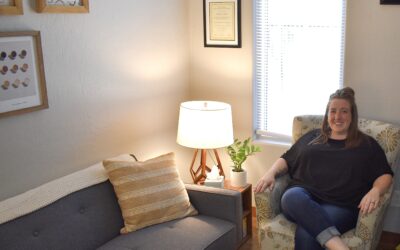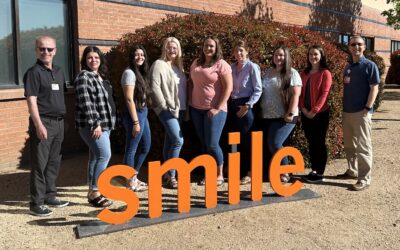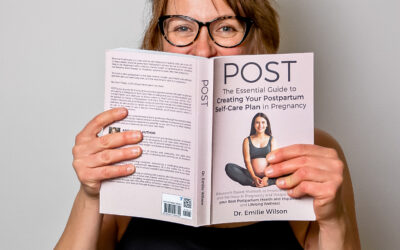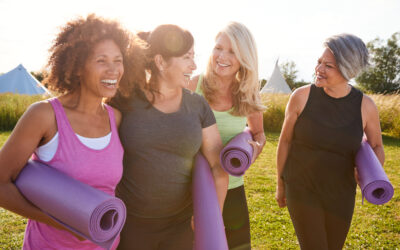Health Today
Featuring local health & fitness articlesNot Just for Adults
Prior to starting her career as a chiropractor and owner of Thrive Family Chiropractic, Dr. Anita Scheer had a career as an accountant. But it was her passion about understanding the intricate connection between the brain and body—and how that connection influences our overall well-being—that drew her to a second career. She said, “Over the years, I’ve seen firsthand the transformative power of neurologically based chiropractic care and supporting individuals at every stage of life—and that is what drives me every day.”
After working with so many patients, Dr. Scheer noticed a growing need among families dealing with neurodevelopmental challenges in their children—challenges like socialization, behavior and learning difficulties. She knew right then to foster her decision to dedicate the scope of her practice to helping these affected children. Now, as a certified Pediatric Experience©, FOCUS Academy© certified doctor, and Brain Blossom© provider, Dr. Scheer offers specialized care that supports and nurtures whole child development focusing on both the brain and the body.
Removing the Mystery from Perimenopause
Shifting hormones make your body feel like a mystery. That’s why puberty feels so awkward, why pregnancy takes over your brain, body and stomach, and why perimenopause is a return to the unexpected. Thankfully, women are getting more savvy about our health. A desire to understand what’s happening in our bodies in perimenopause is revolutionizing women’s health and wellness.
Back on Track
A vacation can throw us off our routine in one way or another. For many, the travel, big meals, and readily available treats mean putting our sensible eating habits on hold. But there’s nothing wrong with indulging a little while you’re on vacation. In fact, the social aspect of seeing new sights and meeting new people helps keep us healthy.
Once we return home, however, resolutions to get back in shape abound. Here are a few sensible tips for a fresh start. You may even lose a few pounds too!
Resume your Routine
A Healthy Voyage
Whether you’re off on a girls’ trip or family vacation, traveling for work, or celebrating a wedding, a trip can be both exciting and stressful. But what if you could sail through long flights, late-night celebrations, and busy schedules on your way to making the memories of a lifetime?
Stress halts your immune system. While some travel stress is inevitable, nourishing your immune system while traveling ensures you get to make the memories you left home for.
These five quick immune-boosting tips will help you stay energized, healthy, and glowing—so you don’t miss a single moment.
A ‘Balanced’ Retirement
Your retirement is here! It’s time for travel, hiking, fishing, gardening, golf, and whatever else your ideal golden years bring. The last thing you want is an unexpected setback, like an accidental fall.
According to the National Institute on Aging, the risk of falling—and fall-related problems—rises with age. In fact, more than one in four people aged 65 or older fall each year.
Statistics show that the rate of fall-related injury and death is even higher in northern Arizona, where we deal with a greater number of specific risk factors such as hills, unpaved streets and trails, historic homes with wood floors and staircases, and icy streets and sidewalks in the colder months.
While it’s tempting to give in to the fear of falling by avoiding activities such as shopping, walking, or socializing, it’s important to stay active to keep strong and healthy. There are many simple things you can do to decrease your risk of an unexpected fall.
Is Your Stress Harming You?
We already know stress is a daily occurrence, whether it is trying to get your kids out of the house on time, being productive at work, or trying to uphold the house. We all go through it. But what if that daily stress was actually causing your health issues? Stress releases complex hormones like cortisol that stay acute in your body for hours. This is called the fight-fright-freeze response and in many situations is needed for our body to deal with what’s at hand. However, when we live in a chronic state of stress, our body lacks the ability to return to a normal state. This causes dysregulation of our parasympathetic nervous system and leads to the development of chronic health conditions.
Once enacted, this acute phase will turn itself off if you are able to regulate your stress level. The following methods are alternative and cost-effective ways to reduce stress.
Food as Medicine—and Pleasure
For years, my 14-day detox program, starting the second week of January, was one of the most popular experiences I offered. I loved it, too; meeting weekly to see how everyone was doing, celebrating wins, working through struggles, and (because I can’t resist) sharing the science behind food-based detoxification.
But I always had a hidden agenda:
To show people the healing power of good food.
And maybe to help make “food-based detox” more a way of life.
Connection and True Healing
Family Nurse Practitioner Louella Bauman started Yavapai Family Medical two years ago so she could practice medicine the way she sees it: as a modality to truly heal her patients.
“I wanted to be able to find the cause of the symptoms so we could actually cure patients instead of just treating them,” she said.
The Prescott native and Prescott High School class of 2000 graduate said during a recent interview that while many patients come in seeking relief from their symptoms, she said, “symptoms are not the illness, they direct you to the cause”.
Louella and her staff take a more natural approach, looking deeper and seeking to treat the deficiency behind the symptom’s cause and cure the root problem. In fact, in addition to her certification as a Family Nurse Practitioner and a Doctorate in Nursing Practice, Louella recently earned her certification as an Acute Practice Holistic Nurse Practitioner (also known as a naturopath).
Mended & Whole Counseling
Mended & Whole Counseling, established in February 2023 by Kimberly Langford, provides a compassionate space for individuals seeking healing and restoration. The practice offers a wide range of services designed to address various aspects of mental health and emotional well-being.
Kimberly, a Licensed Associate Counselor (LAC) and Licensed Associate Substance Abuse Counselor (LASAC) in Arizona, brings a wealth of knowledge and experience to her clients. With degrees in Psychology, Christian Counseling, and Addiction Counseling from Liberty University, and trauma certifications from the Trauma Institute International, she has dedicated her career to helping others navigate the complexities of trauma and recovery.
Improving the Community for Generations to Come
It’s a rare and exciting opportunity when we are presented with a chance to improve the community for generations to come. Thirty-five years ago, a small, grassroots group of like-minded Prescott citizens was given that opportunity. Little did they know that future generations would continue to benefit from their concern for children and their vision for the community’s future.
Autumn Wellness Bucket List
Hello, fall! I love autumn in Prescott. Maybe you do, too? Crisp air, bright blue skies; the return of pumpkin, squash, and other comfort foods; Halloween and spooky ghost stories…
Many women’s lives speed up in autumn, with kids back in school, work projects on the upswing, and minds turning to holiday preparation.
As a doctor I see a pattern this time of year: every autumn, women feel invigorated about their health and come to me ready to finally lose weight, get blood pressure down, get hormones balanced, etc.
But autumn life is vibrant and stimulating and it’s happening all around them, so they easily lose focus on their own health goals. They live, they slip, and they feel guilty that they’re not being “perfect” (even though they promised themselves that this time, they would be).
To Kegel or Not to Kegel?
When asked about your pelvic floor health, what usually comes to mind is the kegel. But what exactly is a kegel, and what are its health benefits? Ask a group of people and there would be many answers because there isn’t a clear consensus on what a kegel does, how to do it correctly, and whether it helps.
Most agree that kegels help strengthen your pelvic floor muscles and manage incontinence. We know they’re named after a 1940s American male gynecologist, Dr. Arnold H. Kegel, and were considered a non-surgical method to prevent women from leaking urine. Beyond that, there’s a lack of specificity in what muscles in the pelvic floor kegels actually engage, who should be doing them, and for how long.



